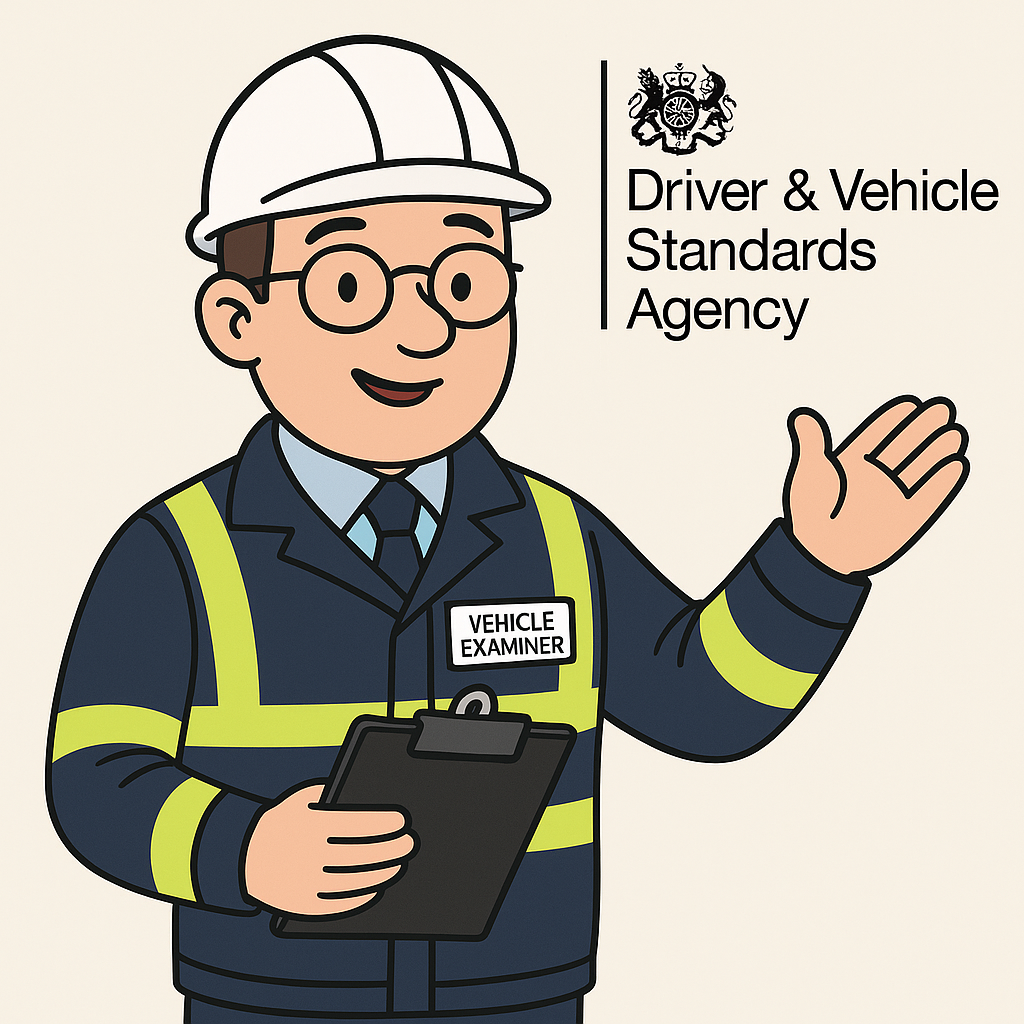DVSA Vehicle Examiner Powers Explained: What Every HGV Operator Needs to Know
If you operate heavy goods vehicles (HGVs) or public service vehicles (PSVs), understanding the powers of DVSA Vehicle Examiners is essential. These officials play a key role in enforcing road safety and ensuring operator licence compliance across the UK's commercial vehicle sector.
In this article, we break down what DVSA Examiners can do, what to expect during inspections, and how to stay compliant to avoid enforcement action.
What Powers Do DVSA Vehicle Examiners Have?
DVSA Examiners have legal authority under UK transport law to carry out inspections and enforcement on commercial vehicles. They are empowered to:
- Stop and inspect HGVs, PSVs, and trailers at any time
- Detain vehicles for as long as necessary during an inspection
- Enter operating centres or other premises where they believe vehicles are kept
- Divert stationary vehicles to a nearby site (within five miles) for a full inspection
These powers are designed to ensure that operators comply with safety and maintenance obligations under their operator licence.
What Happens During a DVSA Maintenance Assessment?
As part of a DVSA maintenance inspection, Vehicle Examiners may:
- Inspect vehicles from your fleet
- Examine safety inspection records and maintenance documentation
- Review your workshop setup and processes
- Discuss safety procedures and defect reporting with management
If they find poor vehicle condition, missing documentation, or evidence of weak systems, the examiner may file an unsatisfactory report. This can result in action by the Traffic Commissioner, including potential curtailment, suspension, or revocation of your operator's licence.
🔧 Tip: Operators must ensure maintenance facilities are suitable and that records are complete and up to date. Even when work is outsourced, the responsibility stays with the operator.
Can DVSA Stop Vehicles at the Roadside?
Yes. The DVSA uses Enforcement Support Officers to stop moving vehicles. These officers may:
- Direct vehicles into roadside check sites
- Use marked DVSA vehicles with illuminated matrix signs
- Operate alongside police in targeted enforcement operations
At the roadside, DVSA Examiners can use:
- Emissions testers and diagnostic tools
- Visual and physical checks for roadworthiness
What If They Find a Defect?
If a DVSA Vehicle Examiner finds a defect, they can issue:
- Immediate Prohibition Notices – the vehicle must not move until repaired
- Delayed Prohibition Notices – repairs must be completed within a set timeframe
- Vehicle Inspection Notices
- Fixed Penalty Notices for serious roadworthiness issues
These actions can be issued at the roadside, at your premises, or at an Authorised Testing Facility (ATF).
Why This Matters for Operators
DVSA inspections aren't just a formality—they're a serious part of maintaining your operator licence and demonstrating your commitment to road safety. Failure to meet expected standards could damage your OCRS score and invite further scrutiny or enforcement.
Stay Ahead with Proactive Compliance
Being prepared is your best defence. That means:
- Keeping digital and paper maintenance records organised
- Ensuring your safety inspection intervals are suitable and followed
- Training drivers on defect reporting and walkaround checks
- Carrying out internal audits of your systems
At LDP Transport Consultancy, we support HGV operators with all aspects of DVSA compliance, including audit preparation, maintenance record reviews, and external audits.
📞 Need Help Staying Compliant?
Whether you're preparing for a DVSA visit or want to tighten up your processes, we can help. Get in touch for tailored advice or explore our Hauliers Hub membership for ongoing compliance support, digital templates, and more.
👉 Contact us at info@hauliershub.co.uk or visit www.hauliershub.co.uk










